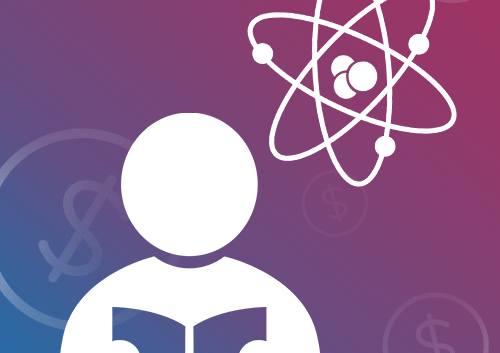- corporate
- Blog post
Report reveals ‘The Science of Learning’
A recent report aims to summarize a body of educational research to reveal how we learn.
Intended to provide practical advice to both learning professionals and learners, the document, entitled The Science of Learning, collects “the existing scientific consensus around basic cognitive principles.”
Five questions
The report, commissioned by an organization of university and college deans called Deans for Impact, is structured around questions that every learning professional should consider. Below is a summary of the key findings.
1. How do learners understand new ideas?
The research says: Students learn new concepts by connecting them to information they already know. To help learners transfer new information into long-term memory, researchers suggest relating new ideas to learners’ prior knowledge.
To do this, learning professionals should first discover what their learners already know about a topic. Then, connect the new information to existing knowledge by pointing out the similarities, using analogies and building on the foundational knowledge that your learners possess.
2. How do learners retain new information?
The research says: Reinforcement, particularly in the form of practice, is essential to retaining new information. But not all practice is created equal.
For effective practice, it should be spaced over weeks and months, to aid long-term retention. This can be accomplished through practice sessions, quizzes or teaching students to test themselves. To maximize effectiveness, consider interleaving – or alternating – the practice of different skills during a single session.
For example, if you’re training salespeople on several different ways to close a deal, have them practice one strategy, then the other, then the other. It will be challenging to continually switch techniques, but it will boost learners’ long-term retention of the content. And space their practice out over multiple sessions so they keep revisiting what they learned.
3. How do learners solve problems?
The research says: Feedback plays an essential role in learners’ ability to transfer new information into action and solve problems on their own.
The keys to effective feedback, according to the research, are: 1.) Feedback should be specific and clear; 2.) It should focus on the task, not the student – meaning, any critical or constructive feedback should address the learner’s current approach to the specific task at hand, and not critique the learner or the learner’s overall proficiency; and 3.) It should attempt to clear up any misunderstandings or blind spots to guide the learner through an improved approach to the task, not just give a performance assessment.
4. How does learning transfer to new situations?
The research says: Examples help learners understand new ideas in different contexts. Instructors should provide both concrete and abstract examples that highlight the concept or underlying principle.
For example, if you’re training supervisors on employee engagement, both specific examples and larger conceptual questions will help them consider and absorb the topic. For the concrete example, you can present a scenario of a disengaged employee and ask learners questions about what they’d do to reengage that specific employee. And for an abstract example, ask larger questions, such as “What are the things you’ve seen that drive employee engagement?,” and “If one of your employees appears disengaged, what would you do to reenergize him or her?”
Also, if you’re teaching learners a complex procedure, consider breaking it down into steps so trainees can more easily apply them in an unfamiliar context.
5. What motivates people to learn?
The research says: Learners are more motivated when they believe that they can improve their skills through hard work. Also, if students can self-monitor their progress, they will be able to accurately gauge their understanding, target weak points and move forward.
The report encourages learning professionals to recognize and celebrate learners’ effort, not just their ability. Trainers should also promote a growth mindset – the belief, validated by research, that people can grow their skills if they work hard to improve.
Learners, on the other hand, should accurately monitor their own progress through self-testing, practice and revisiting previously learned content. Without monitoring progress, learners may have an incomplete or unrealistic view of their own understanding.
Source
Deans for Impact. (2015). The Science of Learning. Austin, TX: Deans for Impact.

Get a demo of all our training features
Connect with an expert for a one-on-one demonstration of how BTS Total Access can help develop your team.



